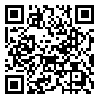Volume 7, Issue 2 (Spring 2019)
PCP 2019, 7(2): 95-106 |
Back to browse issues page
1- Department of Psychology, Neyshabour Branch, Islamic Azad University, Neyshabour, Iran.
2- Department of Psychology, Hakim Sabzevari University, Sabzevar, Iran. , h.radsepehr@gmail.com
3- Department of Nursing, Faculty of Jovein School of Nursing, Sabzevar University of Medical Sciences, Sabzevar, Iran.
2- Department of Psychology, Hakim Sabzevari University, Sabzevar, Iran. , h.radsepehr@gmail.com
3- Department of Nursing, Faculty of Jovein School of Nursing, Sabzevar University of Medical Sciences, Sabzevar, Iran.
Abstract: (2900 Views)
Objective: The present study aims to investigate the effect of emotions (negative and positive affects) and gender on the activity of different brain regions and their relationship with personality traits of extraversion, introversion, neuroticism, and stability.
Methods: The study participants were 33 right-handed volunteer undergraduate students (17 males and 16 females). Our stimuli were two 6-minute long happy and sad video clips. We used electroencephalography for brain imaging. Briggs-Nebes handedness questionnaire, Eysenck personality inventory, general health questionnaire, and positive and negative affect schedule questionnaire were used for assessing participants’ reactions. The collected data were analyzed by MANOVA and ANOVA tests.
Results: Different activities due to positive and negative affect inductions were seen only in right temporal (Sig.=0.036, F=3.453), left temporal (Sig.=0.045, F=2.873), right posterior (Sig.=0.032, F=3.157) and left posterior lobes of the participants’ brains (Sig.=0.014; P<0.01, F=2.932). Under positive affect induction, the activity of right temporal lobe in extraverted people was higher than that in introverted ones. No significant difference was found in the right anterior and right posterior activities between stable and neurotic individuals under negative attitude induction (F=0.387, P>0.05). There was no significant difference of activity in the left anterior of stable and neurotic subjects under negative attitude induction (P>0.05). Also, there was no significant difference between male and female students’ brain activity (P>0.05).
Conclusion: Therefore, regional brain activity is different under positive attitude and negative attitude inductions, but gender does not affect it. Also, personality traits are effective in the activity of some brain regions.
Methods: The study participants were 33 right-handed volunteer undergraduate students (17 males and 16 females). Our stimuli were two 6-minute long happy and sad video clips. We used electroencephalography for brain imaging. Briggs-Nebes handedness questionnaire, Eysenck personality inventory, general health questionnaire, and positive and negative affect schedule questionnaire were used for assessing participants’ reactions. The collected data were analyzed by MANOVA and ANOVA tests.
Results: Different activities due to positive and negative affect inductions were seen only in right temporal (Sig.=0.036, F=3.453), left temporal (Sig.=0.045, F=2.873), right posterior (Sig.=0.032, F=3.157) and left posterior lobes of the participants’ brains (Sig.=0.014; P<0.01, F=2.932). Under positive affect induction, the activity of right temporal lobe in extraverted people was higher than that in introverted ones. No significant difference was found in the right anterior and right posterior activities between stable and neurotic individuals under negative attitude induction (F=0.387, P>0.05). There was no significant difference of activity in the left anterior of stable and neurotic subjects under negative attitude induction (P>0.05). Also, there was no significant difference between male and female students’ brain activity (P>0.05).
Conclusion: Therefore, regional brain activity is different under positive attitude and negative attitude inductions, but gender does not affect it. Also, personality traits are effective in the activity of some brain regions.
Type of Study: Research |
Subject:
Cognitive behavioral
Received: 2018/10/12 | Accepted: 2019/01/28 | Published: 2019/04/1
Received: 2018/10/12 | Accepted: 2019/01/28 | Published: 2019/04/1
| Rights and permissions | |
 |
This work is licensed under a Creative Commons Attribution-NonCommercial 4.0 International License. |





